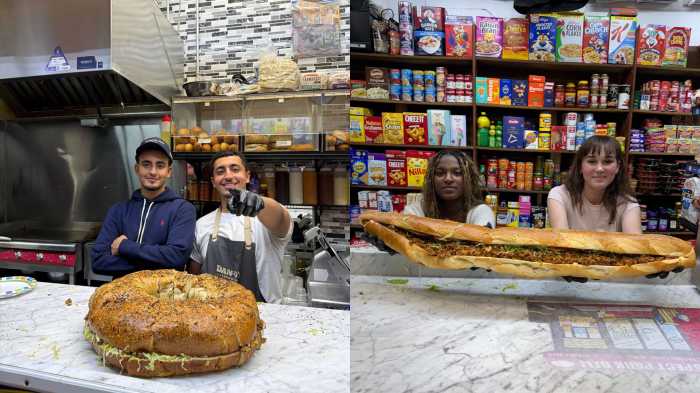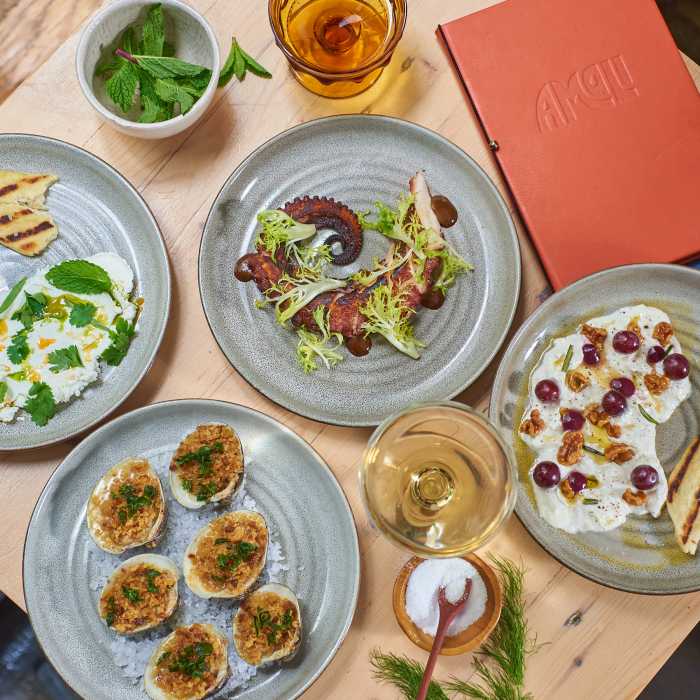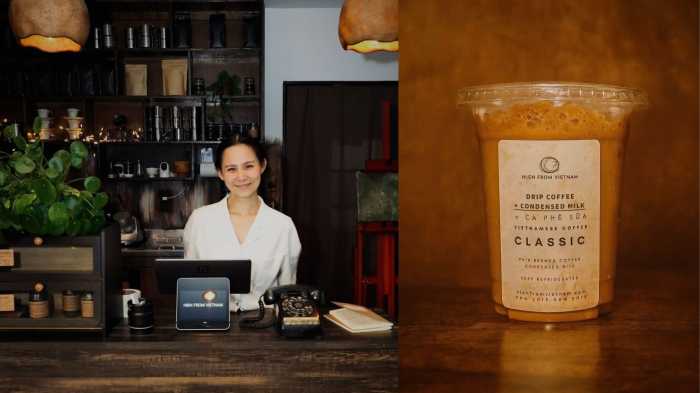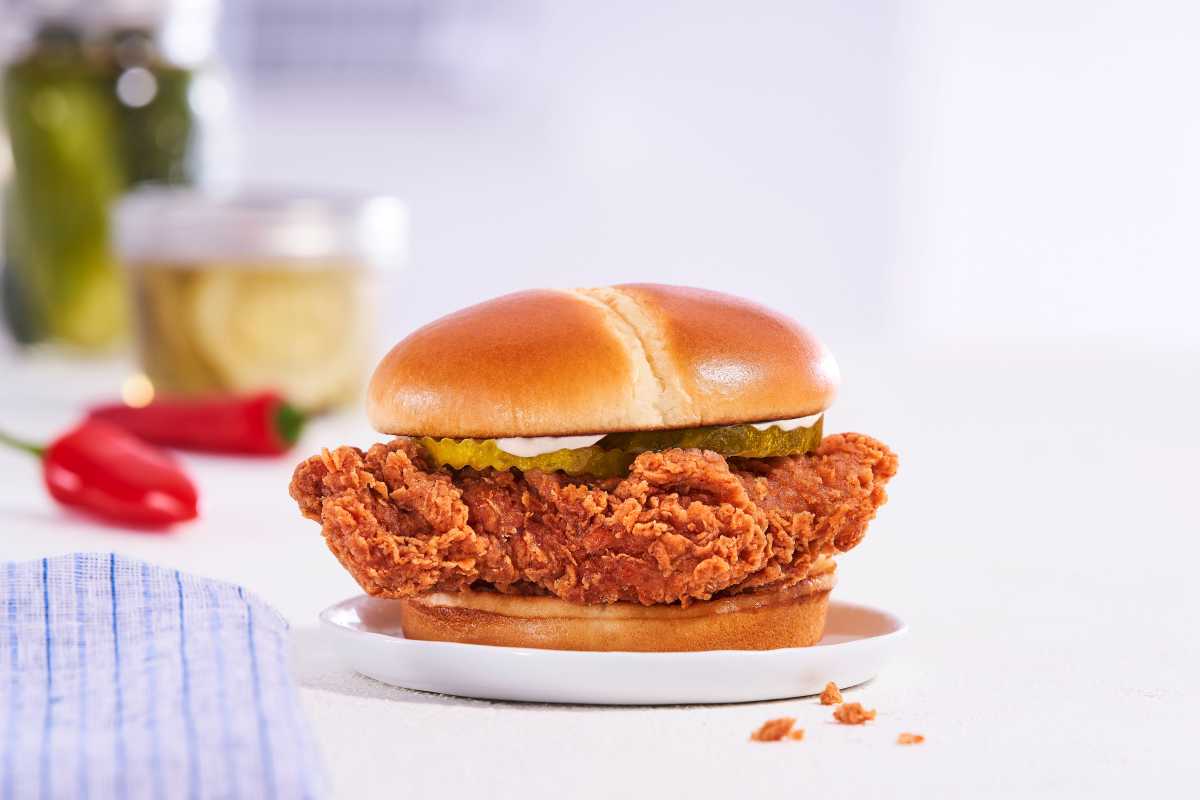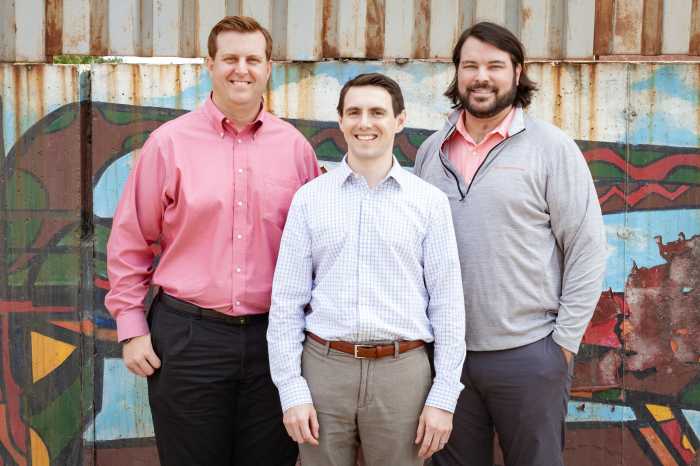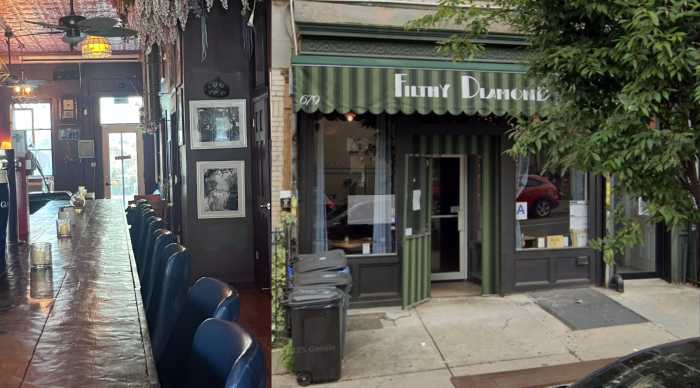The heat was on during the Specialty Food Association’s 68th annual Summer Fancy Food Show at the Jacob Javits Convention Center — which brought thousands of vendors from around the world who doled out samples of their tastiest offerings, including hot sauces of all varieties.
Rooted in a taste for European foods acquired by American World War II soldiers, the Specialty Food Association’s Fancy Food Show, this year between June 23-25, has long been where people from around the world could rally around the universal language of food.
Though, at one time, it focused on more elegant fare like champagne and caviar (which was also at this year’s show), today it serves as a platform to discover niche products and new flavors. From the Lagos jalapenos of Chihuahua, Mexico to the line of “I am Superspicy” condiments from the Netherlands by way of Suriname, there was one pervasive theme across the plethora of items — heat.
Since 2010, hot sauce sales in the U.S. have increased year over year with a total of $1.65 billion in revenue for 2022. But people want more than a kick, they want also to know that what they’re consuming is inclusive and healthy.
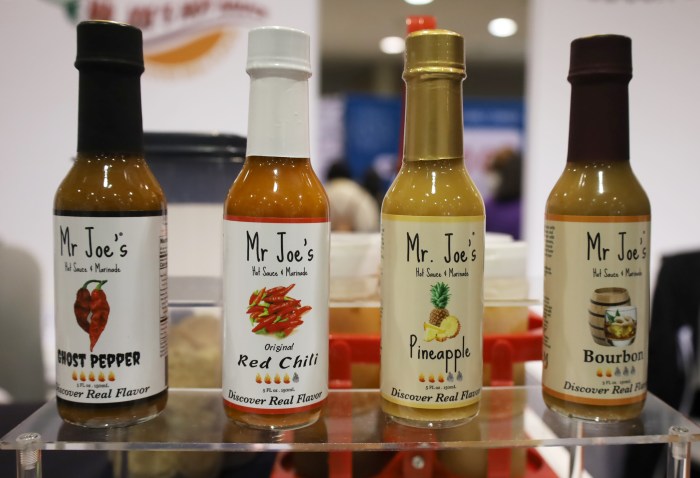
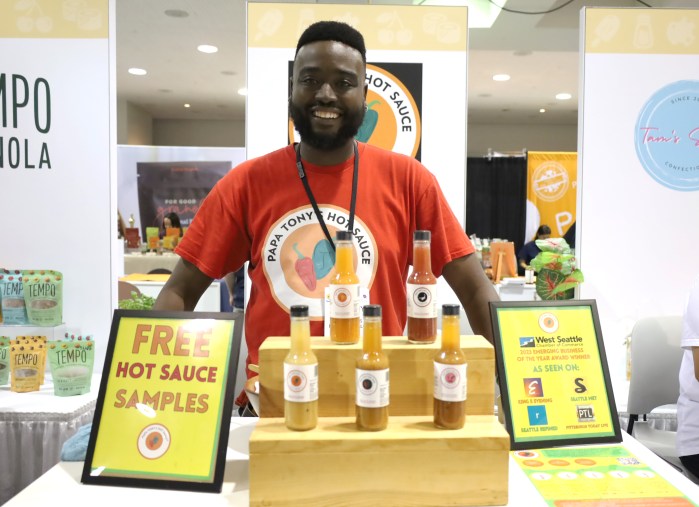
“We became really into hot sauces when we moved here [from Pakistan] and we realized that there were no South Asian hot sauces in the market, in the hot sauce aisle specifically,” Alyzeh Rizui told amNewYork Metro of her hot sauce company, Peepal People, named after the sacred fig tree that proliferates the South Asian continent.
Rizui and her husband, Ahmer Zaidi decided to fill the void and in 2019 created their brand, free of preservatives, containing zero sugar and 75% less sodium than other brands, according to the label on the bottle.
“[My husband] has hypertension so, when we created the sauce, we really wanted to make sure the sodium levels were low,” Rizui added.
When Jean Joseph, founder of Mr. Joe’s hot sauce, came to the U.S. from Haiti to study at Bringham Young University, he, too, became homesick for flavors of his childhood, finding no satisfaction in the stores of 20th century Utah. The son of a pepper farmer, Joseph sourced his ingredients and made his own sauce. It was a hit amongst his college friends, but it wouldn’t be until decades later that he would develop his own brand with an emphasis on health.
“There’s no mechanical gums, no tomato and no vinegar,” said Joseph, who believes the overuse of those ingredients in most hot sauces contributes to gastrointestinal problems. Instead, his sauces and marinades are pepper-forward and diluted with water.
“It’s like you’re able to really showcase the flavor and it’s not just about making my food spicy,” said professional trendspotter Melanie Bartelme, associate director of Mintel Foods. “I think what we’re seeing is these nuances of flavors where it’s the freshness and the care of ingredients.”
Papa Tony’s hot sauce, born in New Orleans during the pandemic, but now based in Seattle, Washington, also focuses on an approach that avoids the additives and thickeners.
“That’s very important to me,” Tony Wilson, the brand’s founder, told amNewYork Metro. Wilson grew up on government assistance where his ration of vegetables came from a can and didn’t discover the beauty of fresh produce until adulthood. He now makes sure to use whole foods in his sauce, a third of which are sourced from local farms.

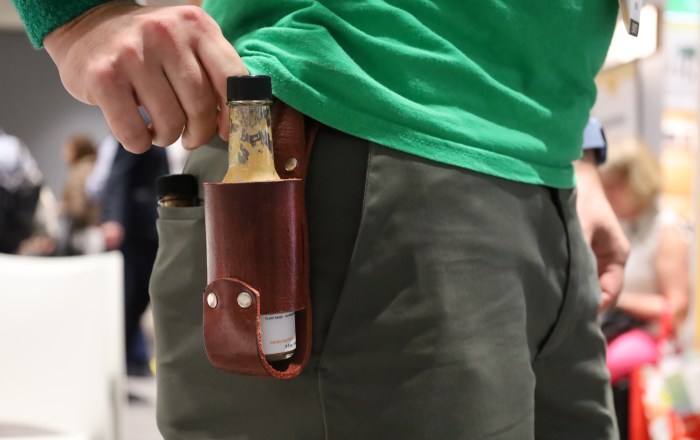
According to a study by NCSolutions, 93% of Americans eat hot sauce and 34% consider themselves hot sauce connoisseurs. Much like “Hot Sauce Jimmy” from Austin, TX, who came to the Summer Fancy Food Show wearing a Tabasco bandana and a custom-made hot sauce holster.
The self-proclaimed “capsicum consultant” was sitting in the audience on Sunday, June 23, listening to Heatonist founder and CEO, Noah Chaimberg lead, “Feeling the Heat: Exploring Nuanced Spice with Hot Ones by Heatonist.”
Among the several topics discussed, inclusivity and brand identity seemed particularly important.
“I think I’m fun and bright — even with the name, Hot N Saucy, I just wanted to make this entire brand the hot sauce version of me,” said Chef Sam Davis-Allonce, one of the panelists and creator of Hot N Saucy. Stamped on each bottle is a silhouette of a woman’s head with hair like Diana Ross.
And across these hot sauce brands, and many companies for that matter, websites have been including an “about” page or an “our story,” explaining the company’s roots and/or their commitments to representation, health and sustainability. But why?
“Because consumers want authenticity and engagement on the level of ‘why does this product matter?’” said Victoria Ho, board director of Specialty Food Association who focuses on CPG and creating diversity in the space. “The point is, can we reflect the people that we’re serving?
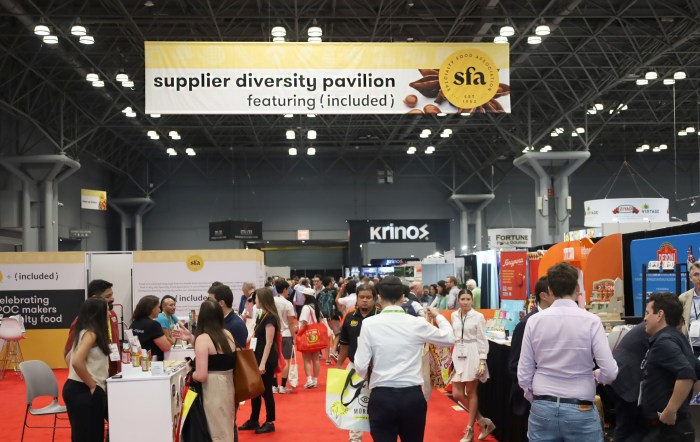
As people become more health conscious and socially aware, their beliefs and practices are reflected in their consumption. From television to hot sauce, everything they devour becomes reflective of their values. Like the recent boycott of David Chang’s chili crisp.
“[Consumer product goods] have been dominated for such a long time by conglomerate corporations that you kind of lose connection to the inspiration or the purpose or even the functionality behind it,” Ho said while standing in the designated diversity pavilion of the Fancy Food Show. “So part of what is included is trying to drive visibility for the fact that the people who make the product matter.”
This article was updated on July 2 at 1:32 p.m.




